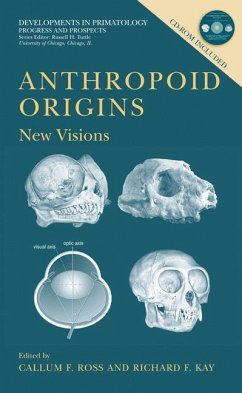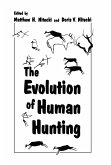The study ofanthropoid origins continues to be a lightning rod for research in paleoanthropology. Issuessurrounding anthropoid origins impact the higher leveltaxonomy ofprimates, adaptivescenariosfor basalprimate radiations, and the timing of origination of the major primate clades. Basic questions about anthropoid evolution remain unanswered. Where do anthropoids fit phyloge netically among primates? Where and when did the group originate? What functional and adaptive innovations characterize anthropoids today and what is the adaptive significanceand phylogenetic history ofthese innovations? The fossil record of early anthropoid evolution has greatly improved in recent years. Developments in systematictechniques and theory, as well as the burgeoning molecular evidence, make this an ideal time for these fossil discoveries to be placed in the context of data on the relationships among living primates. There isan improved understandingoffunction and adaptation in the visual system,brain, and masticatory apparatus, key anatomical systems where anthropoid synapomorphies are concentrated. New methods for estimating visualacuity and activitypatterns in fossil primates are providing insights into the evolution ofthe visualsystem. The rapid accumulation ofinformation on color vision in primates, including new genetic evidence of possible trichro macyin strepsirrhines, and new behavioraldata on the benefitsofcolor vision, makes this an exciting time to evaluate the role of chromatic perception in anthropoid evolution. Research into the primate visualsystem by neuroscien tists has generated a plethoraofimportant data in recent years, making this an ideal time to bring these researchers together with anthropologists.
Bitte wählen Sie Ihr Anliegen aus.
Rechnungen
Retourenschein anfordern
Bestellstatus
Storno









